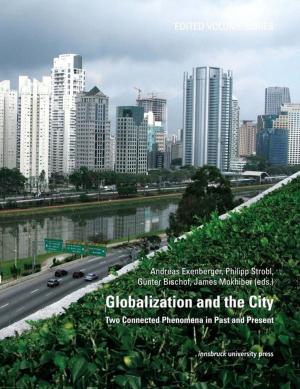| Author: | Collectif | ISBN: | 9783903122406 |
| Publisher: | innsbruck university press | Publication: | September 29, 2016 |
| Imprint: | innsbruck university press | Language: | English |
| Author: | Collectif |
| ISBN: | 9783903122406 |
| Publisher: | innsbruck university press |
| Publication: | September 29, 2016 |
| Imprint: | innsbruck university press |
| Language: | English |
After the dissolution of the Austro-Hungarian Monarchy, Austria transformed itself from an empire to a small Central European country. Formerly an important player in international affairs, the new republic was quickly sidelined by the European concert of powers. The enormous losses of territory and population in Austria's post-Habsburg state of existence, however, did not result in a political, economic, cultural, and intellectual black hole. The essays in the twentieth anniversary volume of Contemporary Austrian Studies argue that the small Austrian nation found its place in the global arena of the twentieth century and made a mark both on Europe and the world. Be it Freudian psychoanalysis, the “fin-de-siècle” Vienna culture of modernism, Austro-Marxist thought, or the Austrian School of Economics, Austrian hinkers and ideas were still wielding a notable impact on the world. Alongside these cultural and intellectual dimensions, Vienna remained the Austrian capital and reasserted its strong position in Central European and international business and finance. Innovative Austrian companies are operating all over the globe. This volume also examines how the globalizing world of the twentieth century has impacted Austrian demography, society, and political life. Austria's place in the contemporary world is increasingly determined by the forces of the European integration process. European Union membership brings about convergence and a regional orientation with ramifications for Austria's global role. Austria emerges in the essays of this volume as a highly globalized country with an economy, society, and political culture deeply grounded in Europe. The globalization of Austria, it appears, turns out to be in many instances an “Europeanization.”
After the dissolution of the Austro-Hungarian Monarchy, Austria transformed itself from an empire to a small Central European country. Formerly an important player in international affairs, the new republic was quickly sidelined by the European concert of powers. The enormous losses of territory and population in Austria's post-Habsburg state of existence, however, did not result in a political, economic, cultural, and intellectual black hole. The essays in the twentieth anniversary volume of Contemporary Austrian Studies argue that the small Austrian nation found its place in the global arena of the twentieth century and made a mark both on Europe and the world. Be it Freudian psychoanalysis, the “fin-de-siècle” Vienna culture of modernism, Austro-Marxist thought, or the Austrian School of Economics, Austrian hinkers and ideas were still wielding a notable impact on the world. Alongside these cultural and intellectual dimensions, Vienna remained the Austrian capital and reasserted its strong position in Central European and international business and finance. Innovative Austrian companies are operating all over the globe. This volume also examines how the globalizing world of the twentieth century has impacted Austrian demography, society, and political life. Austria's place in the contemporary world is increasingly determined by the forces of the European integration process. European Union membership brings about convergence and a regional orientation with ramifications for Austria's global role. Austria emerges in the essays of this volume as a highly globalized country with an economy, society, and political culture deeply grounded in Europe. The globalization of Austria, it appears, turns out to be in many instances an “Europeanization.”















